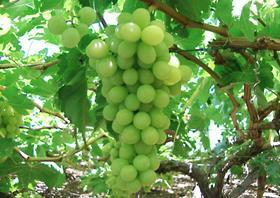
South African grape growers expect a decent export crop for the coming season, one that compares favourably with the five-year average, despite the effects of the recent drought in the country’s Western Cape region.
The South African Table Grape Industry (SATI) expressed concern about the persistent drought, which is described as a 3-in-100-years occurrence.
However, the group revealed that it expected a 2017/18 harvest in line with the 5-year average, which stood at 57.9m cartons between 2012/13 and 2016/17.
Although certain producers and areas that are most affected by the drought are likely to be significantly impacted, the effect at a national level is less pronounced, according to SATI.
It put this down to the climatic diversity in South Africa, increased hectares coming into production, the shift to higher yielding varieties and growers resilience and ability to adapt.
Michael Laubscher, chairman of SATI, commented: “As an industry, we realise that South Africa is a water-scarce country, therefore everyone has a responsibility to be water-wise.”
He said that this was the reason why SATI hosted seminars at the end of September in the three table grape growing regions in the Western Cape, where the effect of the drought is most severe.
During the seminars, leading researchers from SATI, the Agricultural Research Council and the Western Cape Department of Agriculture shared best practice and practical advice on dealing with drought and water stress with growers. An official from the National Department of Water and Sanitation presented an overview of the status of dams, as well as plans to manage the remaining water resources.
Although SATI traditionally releases the first crop estimate at the end of October when the early production regions have commenced packing, a detailed estimate will this year only be released in early November due to the extraordinary drought conditions in the Western Cape.
According to Willem Bestbier, CEO of SATI, South African producers will still deliver excellent quality to export markets during the coming season.
“We are in close contact with the Western Cape Provincial Government, as the table grape industry is particularly vulnerable due to its reliance on irrigation,” he said. “It makes a huge contribution to the employment and economy of the Western Cape and the country.”






No comments yet